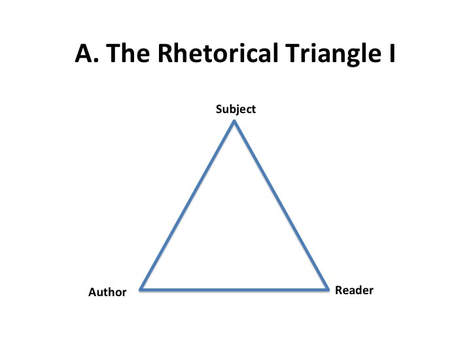|
Key One: A Text Will Tell You How to Read It One of the biggest mistakes in reading is not engaging our text on its own terms. I’ve come to believe that a text will tell you how to read it, and often early on. This is especially true in world class writing, but almost any communication will set the terms of engagement in its beginning. It’s a front door key, if you will… and paying attention here will orient us on the perspective we need to read well. So pay special attention to beginnings, to language and context that is given immediately and to the common sense attributes of how we should be reading. Let’s look at a few examples to highlight how this might work. 1) “Sing, O goddess, the anger of Achilles son of Peleus, that brought countless ills upon the Achaeans. Many a brave soul did it send hurrying down to Hades, and many a hero did it yield a prey to dogs and vultures, for so were the counsels of Jove fulfilled from the day on which the son of Atreus, king of men, and great Achilles, first fell out with one another.” (The Iliad, Book I by Homer) Here’s the move. Knowing nothing else about The Iliad what is this epic poem about? It’s about Achilles, his response of anger, and this causing a whole lot of trouble for the Greeks. You’re off to a solid reading of Homer. The entire plot of The Iliad is driven by our hero and his choices. At least in part, this work is about the interaction of his will and the will of the gods intermingling and how one man can tip the balance of a war between puissant city states. Homer just hands it to us. Here’s what’s about to happen, pay attention to Achilles and his anger and follow it to the end. Example two, is from one of the most famous first lines in all of literature. 2) “Call me Ishmael.” (Moby Dick, Herman Melville) This is good on so many levels, it’s hard to know where to start. The direct address of the character to the reader engages us and draws us into the story. The speaker isn’t informing us of a name as much as asking us to be a participant - for us to actively call the speaker by the name given. It’s not, “Hey, my name is Ishmael.” The word, “call” goes beyond naming and speaks to the act of relationship, of summoning, or purpose and even perhaps of call and response. The name Ishmael comes from the book of Genesis where Abraham and Sarah are weary of waiting for God to deliver on the child of promise. So, they decide to take matters into their own hands and help the will of God along by having Abraham impregnate Hagar, a servant. The resultant child was named Ishmael, and while he was technically Abraham’s first born, he was cast aside when Isaac arrived. And both Hagar and Ishmael were eventually driven out of the household altogether by Sarah, for understandable, if not charitable, reasons. If Isaac was the child of promise, then Ishmael is the child of exile. Instead of being miraculous, Ishmael is the poor substitute of unfaithful union and mankind’s over-reaching to the plan of the divine. There is a sadness that comes with the name, the identity of second class, through no fault of his own. So what can we say given only the first line of Melville? This tale is not going to be a happy one. We know that before we even get started and because Melville knows his business. This narrative will take the path of the disenfranchised, the one who struggles in the desert (as it were) and whose fight will, by nature of identity, never be won. With “Ishmael” as an indicator, the text is telling us that this narrative will be of someone drawn into events beyond their control. And just like that, you’re in the right space to dig into Moby Dick. A text will tell you how to read it.
0 Comments
Over the next couple of weeks, I'd like to take a shot at a basic primer on reading well. It's something I'm passionate about, and something that I think will make the world a better place. To read well isn't just about reading well... it applies to conversation and counsel, to music and movies and we live in a world where communication is pervasive, bombastic, pointed but occasionally beautiful. To navigate our world fraught with signs and symbols, thoughtfully, is an incredibly useful tool. To start, here are my assumptions: 1) Reading well is a skill that we can learn to do better. You've heard the saying, "good writers will occasionally borrow from others, great writers steal shamelessly." Charges of plagiarism aside, there is a lot of truth in that and it isn't a bad thing. Ideas are infectious and they jump from soul to soul like a wildfire. So please note that none of this is original. I'm "borrowing" from Augustine and Aquinas, Shakespeare, Aristotle and Kenneth Burke and a host of others. I've come to believe that this isn't primarily an academic exercise. It's something that ordinary people can and should get better at. There are tips and tricks, basic heuristic techniques that almost anyone can employ to slice into the meaning around us. I'll break these down into 7 keys, with principles and examples for your viewing pleasure. 2) Words have meaning and are incredibly powerful. A single sentence understood is more intimate than a kiss. When we speak or write or sing and someone truly "gets" what we're expressing it is, in a very real sense, a mingling of the soul. That's even more of a leap than crossing the spit barrier with someone you're quite fond of. This may seem self evident, but I'm taking it a bit farther than most people do. I'm going full on Freud here, words have meaning and ALL words have meaning, EACH word has meaning and as we dig in, insight abounds. 3) The pieces matter. This is the communication or rhetorical triangle: This isn't brain surgery, but it's helpful to remember. You have a speaker, a hearer and the thing being said. All of these things impact the nature, tone, effectiveness and understanding of the communication at hand.
If you scroll through Facebook, (at least on my feed) you'll see responses that are myopically focused on the "reader" side of things, to the point of ignoring the perspective and motive of the speaker and the thing that was actually said. Over-emphasizing any one of the pieces can result in a train wreck. In my opinion, this is a huge mistake. This is how the far right and the far left take the same set of facts and twist them into two completely different political narratives. Don't read only to confirm your own prejudice... and don't judge the subject as out to lunch automatically because of your dislike for the author. Don't filter the actual content through your own perspective so heavily that you miss the point. We're all guilty of this to some extent - but being aware of the tendency can help. Stay tuned... we'll dig into some keys for reading and my dearest hope is that this will be useful to everyone who reads it... |
Our Writers:At The Surge we love doing things together... that includes writing a blog! Here are a few of our main contributing authors: Greg JohnsonJesus++ Dwaine DarrahOur fearless leader, Dwaine is the lead pastor at The Surge. His experience in counter terrorism with the CIA prepared him for ministry and he likes dogs and babies even more than E does. EE (short for Eric Reiss) is the Wingman at The Surge and likes dogs, music, Mexican food, his wife Karen and his little girl Evangeline... not necessarily in that order. Archives
June 2024
Categories
All
|
|
|
The Surge Community Church
Meeting Sunday Mornings at The State Theatre in Falls Church, 11:10am! Rebroadcast Available Sunday Evenings with SurgeOnDemand, 7:00pm! |




 RSS Feed
RSS Feed
